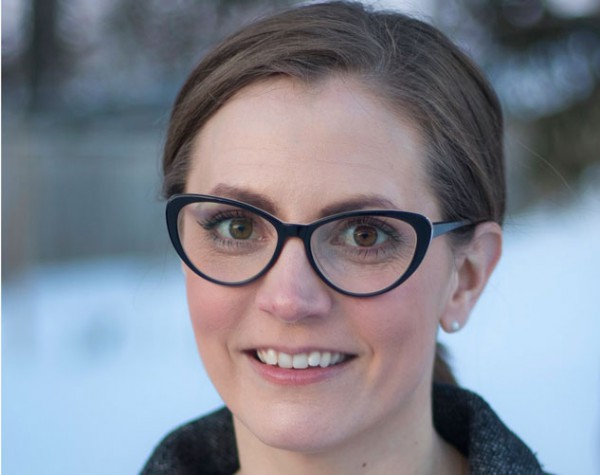Emmanuel Grad Spotlight: Betsy Ann DeVries, Emm 2T0

Since the lockdown in March 2020, Betsy DeVries and her husband have been busy homeschooling their two children and working as co-pastors in two different congregations in rural Ontario. Despite the challenges of COVID-19, she juggled her roles as pastor, teacher and parent, discovering new worth and importance in her vocation. She eloquently speaks of the lessons she learned in these unusual times, “Trying to find some semblance of balance between pastoring, parenting and teaching has proven to be elusive. There are always things left undone and people who need more attention and care than I can give. The challenges have taught me that self-care is non-negotiable, and that people care more about how I treat them than how much I know or how much I do.”
Since graduating in May 2020 with a PhD in homiletics, DeVries designed and remotely taught four courses for Calvin Theological Seminary and Kuyper College, both in Grand Rapids, Michigan; as well as a course for inmates through the Calvin University Prison Initiative (all while continuing her pastoral work) during the 2020-21 academic year. For DeVries, these teaching opportunities made clear the diverse and unequal ways that COVID-19 have affected her students depending on their life circumstances and learning contexts. Taking her course through the Calvin University Prison Initiative, the inmates had to grapple with many challenges, including limited or no access to internet, computers and books. Also, COVID-19 hit a disproportionate number of the residents who continue coping with the long-term effects of the disease. “For my course with the Prison Initiative, I have focused on joining my pastoral identity and academic work together in tending to the students as whole people who have undergone an immense amount of stress and change over the past year. This means being flexible in my own idea of what they should learn by giving them ample opportunities to reflect on where our learnings and their lived experiences converge and where their lived experiences have something to offer to the academy.”
DeVries chose to do her PhD studies in homiletics at Emanuel College when she was an MDiv student of John M. Rottman at Calvin Theological Seminary. Rottman had been a student of Emmanuel’s Paul Scott Wilson, professor emeritus of homiletics, and encouraged her to study with him. DeVries credits the impact of Emanuel College on her vocation and her life, “Coming from a fairly conservative Reformed tradition and monocultural setting, my first year at Emmanuel was disorienting. Eventually the impulse to argue and dismiss other points of view gave way to a much healthier posture of curiosity and listening. After studying for four years at Emmanuel, I am profoundly grateful for the impact it has had on my theology and life. Studying with Wilson has also solidified the grammar of the Four Pages of the Sermon in my preaching style and solidified my commitment to speaking a word of grace in every sermon.”
When asked about DeVries’ experience at Emmanuel, she commented that she “was formed by the community at Emmanuel to both love people better and to be a more gracious and generous scholar. I still value the friendships and connections to peers and professors that I made both as a student and as a teaching and research assistant.”
Studying at Emanuel College has inspired DeVries’ rethinking of the doctrine and practice of eschatology–a rethinking that culminated in her ambitious dissertation, Preaching as Eschatological Event: Imitating and Participating in the Tension, Movement, and Hope of the Gospel. In De Vries’ own words, “Eschatology has so often been used as a tool of fear to scare people into turning toward God. As I researched and dug into it, I came to see that eschatology has also been understood as the doctrine of Christian hope, not fear. The task of my thesis was to identify the characteristics of Christian (more specifically, Reformed) eschatology that could be reflected in the form of the sermon such that people experience the sermon as a hopeful event. I came to see that hope exists in tension; tension between present realities and God’s promised future, tension between trouble and grace. This tension is not static, it also moves. So, the second characteristic of hopeful proclamation will be movement. Movement from trouble to grace, from fear to hope, from the cross to resurrection. Finally, hopeful proclamation should result in that hope being put into action in the world as the congregation is sent out to join God’s mission to bring healing, hope, peace and justice to the world. Hopeful proclamation is a way of reflecting the eschatological character of the Christian gospel in any sermon, whether or not the preaching text comes from the apocalyptic genre.”
On DeVries’ future plans, “I hope to continue in pastoral ministry where I can put my learning and research into practice by cultivating hope and action in the local church. I would also love the opportunity to continue teaching and researching the relationship between preaching, eschatology, and hope–holding the world of the pastorate and the world of the academy together in my own life and ministry.”
